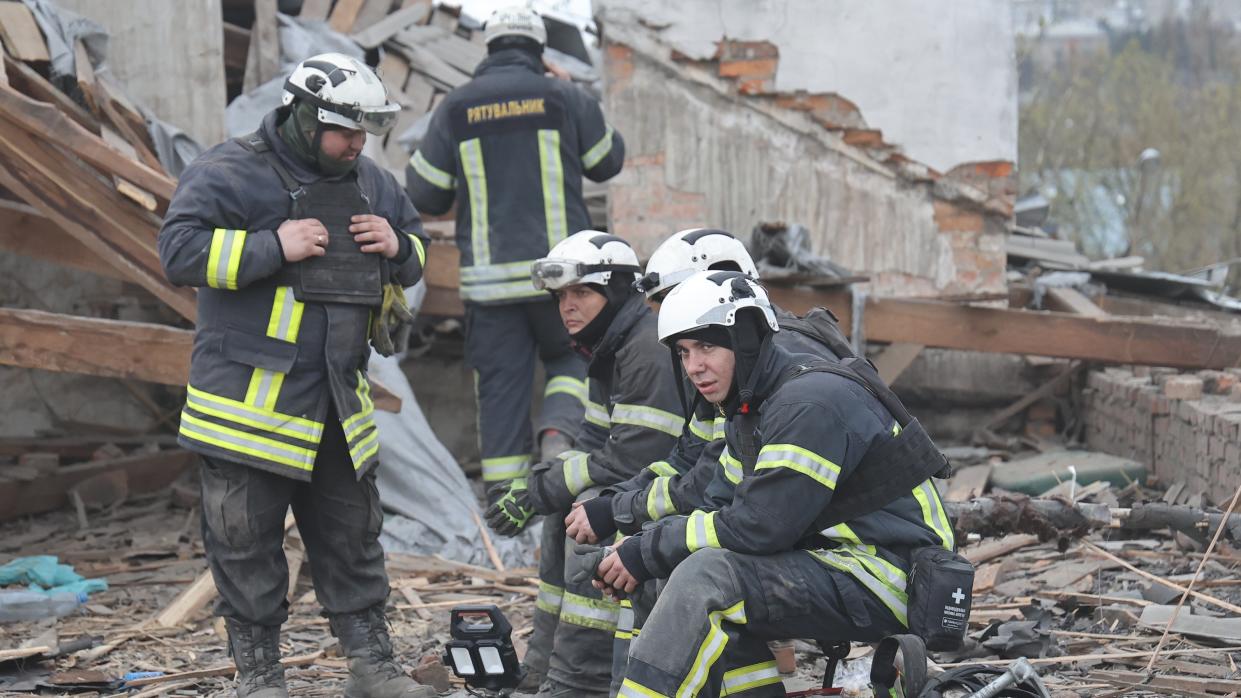Ukraine's battle to save Kharkiv from Putin's drones

Kharkiv has been subjected to a wave of drone attacks as Russia intensifies its bombardment of Ukraine's second-largest city ahead of a possible major summer offensive.
Since February, the civilian population of Kharkiv has been subjected to "daily missile strikes and drone attacks", said The Times. Energy infrastructure and residential buildings have been Russia's "primary targets" in the bombardment.
On Saturday, eight people were killed and ten injured when missiles "struck residential buildings and a petrol station to the northeast of the city", said the paper.
At least seven people were killed after dozens of Iranian-made Shahed drones were fired on the city on Thursday, some hitting residential buildings, said the BBC.
Three of those killed were rescue workers who died in a "double strike" on a residential building after they arrived to assist, according to Kharkiv's mayor Ihor Terekhov on Telegram.
Why is Kharkiv being targeted?
Russian forces were successfully driven back from Kharkiv in the early weeks of the war, but it appears now that Russia's strategy for capturing the city is to "simply blast it into submission", said The Times.
Kharkiv has endured almost daily attacks for almost two months, with Russian propagandists calling for the city to be "wiped from the face of the earth" on national television.
The city's proximity to the Donetsk Basin and its position at the centre of a network of railways "means it holds enormous strategic value", said the paper. It is located just 25 miles from the Russian border, and if it fell to Russian forces then Moscow would be in a position to "encircle Ukrainian forces in Donbas".
What is the situation in Kharkiv now?
The drone attacks come in the wake of a "massive" missile assault on 22 March, in which Russia "destroyed most of the city's electrical substations and damaged the Zmiivska power plant", said Politico. More than 150,000 people lost their homes in the attacks, and blackout schedules now instituted in the city mean "residents going without power for 4-8 hours a day".
Kharkiv has now suffered further damage in the recent drone strikes, with "high-rise buildings, administrative buildings, dormitories, a kindergarten, shops, cafes and cars damaged", said the BBC.
Most of Russia's drone strikes have been launched from the Belgorod region bordering Ukraine. Ukrainian forces have responded with shelling and ground operations in the region.
What next?
The recent escalation of attacks on Kharkiv has led military sources in Kyiv to suggest that Russia plans to make the city a "grey zone" – uninhabitable to civilians, said The Economist.
While Russia's "exact intentions are not clear at this stage" there are signs that Moscow is "preparing for a major summer offensive".
Kharkiv is one of several sites of a possible future assault, and while it is "not the most likely" it has been "heavily trailed in Russian media".
Yet a military operation to seize Kharkiv remains a "tall order" for Russia, and its last attempt in 2022 "failed spectacularly". Taking the city would require "breaking through Ukrainian defences and encircling it, which Russia is nowhere near being able to do; establishing air superiority, which is not a given; and winning a bloody urban campaign", said The Economist.
"They won't be able to take Kharkiv, but destroy it – perhaps," said Denys Yaroslavsky, a local businessman turned special forces reconnaissance commander, speaking to the paper. "We’d be talking about something of the order of Aleppo," he said, referencing the Syrian city that saw heavy bombardment in 2016.
Ukrainian president Volodymyr Zelenskyy used a Sunday night address to call for Ukraine's allies to provide air defences and further support as Kharkiv continues to be subjected to drone and missile attacks.
"It is quite obvious that our existing air defence capabilities in Ukraine are not sufficient and it is obvious to our partners," Zelenskyy said. "And the world must finally hear the pain that Russian terrorists are causing to Kharkiv."

